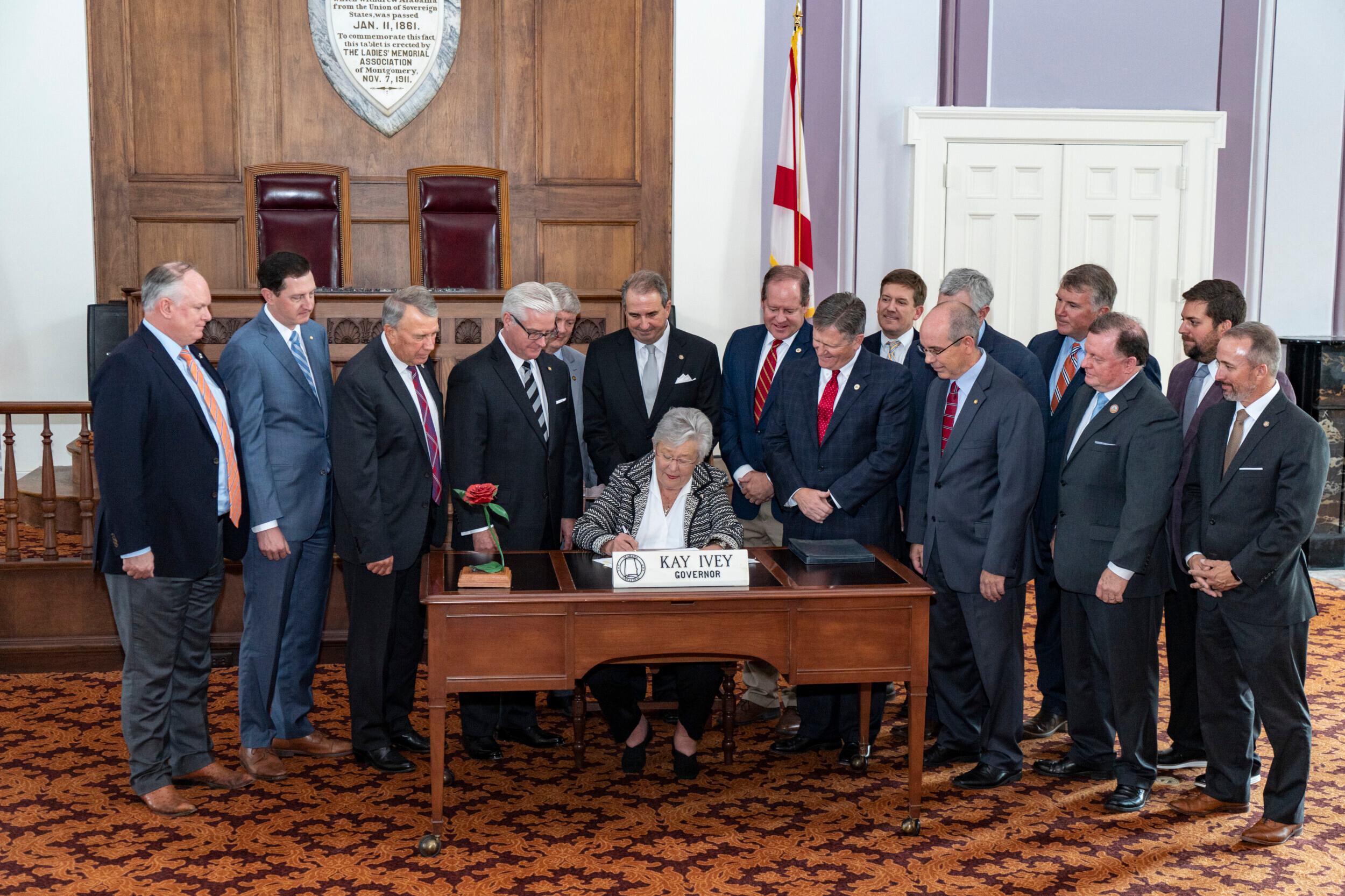It has been 919 days since the Alabama Legislature adjourned sine die the 2021 special session for new prison construction.
At the time, the stated reason for the impromptu special session was to set aside $1.3 billion in funding and expedite a process for the construction of two new prisons, one in Elmore County and the other in Escambia County, while the federal government was investigating the Alabama Department of Corrections for Eighth Amendment violations.
Nearly three years later, the price tag for the Elmore County facility has ballooned to more than $1 billion, meaning the legislature will have to come up with additional funding for the eventual construction of the Escambia County facility.
The timeline for completion of either remains unclear as well.
The state implemented a design-build plan for the Elmore County facility, which means the project's costs evolve as the design process leads to construction.
It is a deviation from the state's traditional method of the bid-build process, in which bids are submitted, and from that, a price is set in stone for the lowest qualified bidder before work begins.
During an interview with Mobile radio FM Talk 106.5's "The Jeff Poor Show," State Rep. Craig Lipscomb (R-Gadsden), a practicing architect and graduate of Auburn University's College of Architecture, Design and Construction, discussed the design-build process and why it made sense for the new statehouse being constructed by the Retirement Services of Alabama but not the new prisons.
"I think the state house is a unique thing," he said. "We're not utilizing state funds or state resources of any kind to do that particular project. That's a third party. But as it relates to anything else in the world, I'm a big fan of the traditional bid process. I feel like you get the thing fully designed. You put it in front of a bunch of contractors. And the most qualified one with the lowest price is the winner at the end of the day. It's tried and true. It's been done for a million years, and I like it. The design-build process works when you have a contractor that's utilized on a regular basis, especially if you're reproducing a product you've done numerous times or something similar,"
"I didn't like that format," Lipscomb continued. "And I made that comment from the very beginning. I don't like the way that was handled. It means you don't get a locked in number on the front end. That troubles me, you know? And I think we're seeing the side effects of that at the moment."
According to Lipscomb, had the State of Alabama relied on the traditional bid-build process, construction would likely have been further along.
"I don't know that we've ever done that process before," he said. "But I think the reasoning for that was the expediency of the project. The feds were hammering us. We've got to get this done."
"I would have to believe that if we had done the traditional bid-build process, then what you would have seen is some incentive to get that done more efficiently and more expediently because the contractor is losing money every day they're not on the job site. Clearly, this is a little different in that — I don't know what the terms of the contracts are. Forgive me for not knowing that but I would guess that is why it is dragging on a bit because there's some squish down there somewhere."
Jeff Poor is the editor in chief of 1819 News and host of "The Jeff Poor Show," heard Monday-Friday, 9 a.m.-noon on Mobile's FM Talk 106.5. To connect or comment, email jeff.poor@1819News.com or follow him on Twitter @jeff_poor.
Don't miss out! Subscribe to our newsletter and get our top stories every weekday morning.










